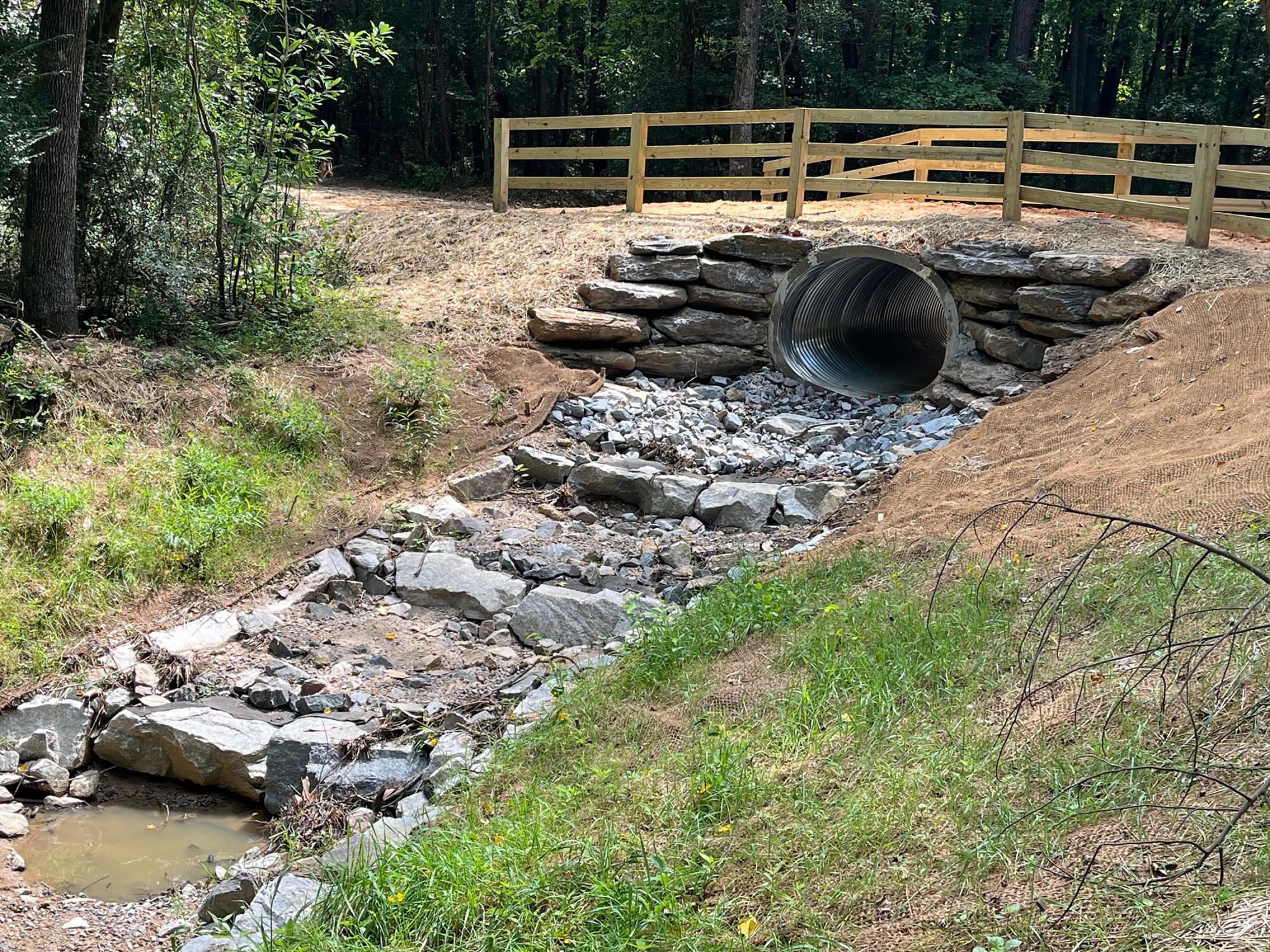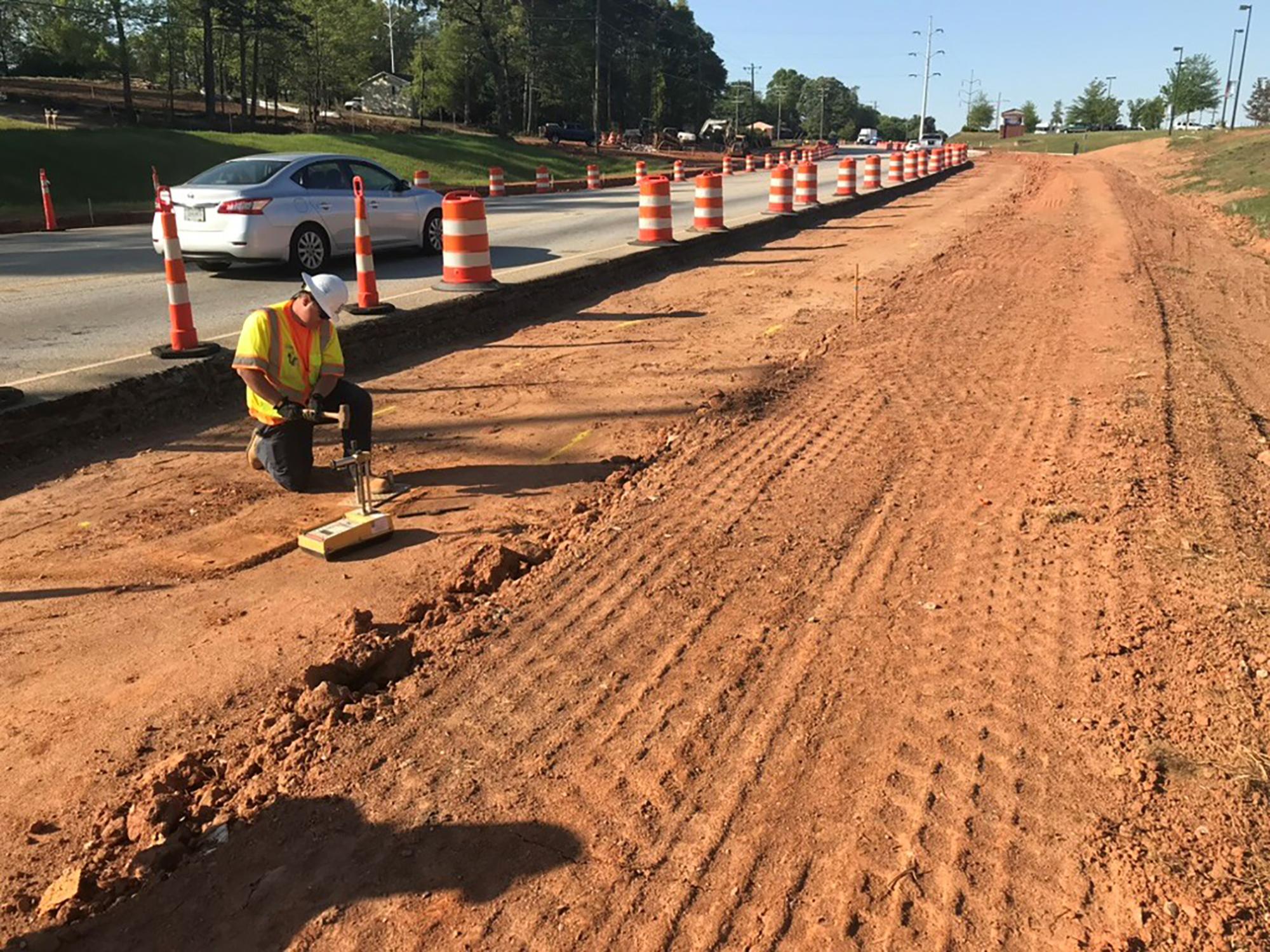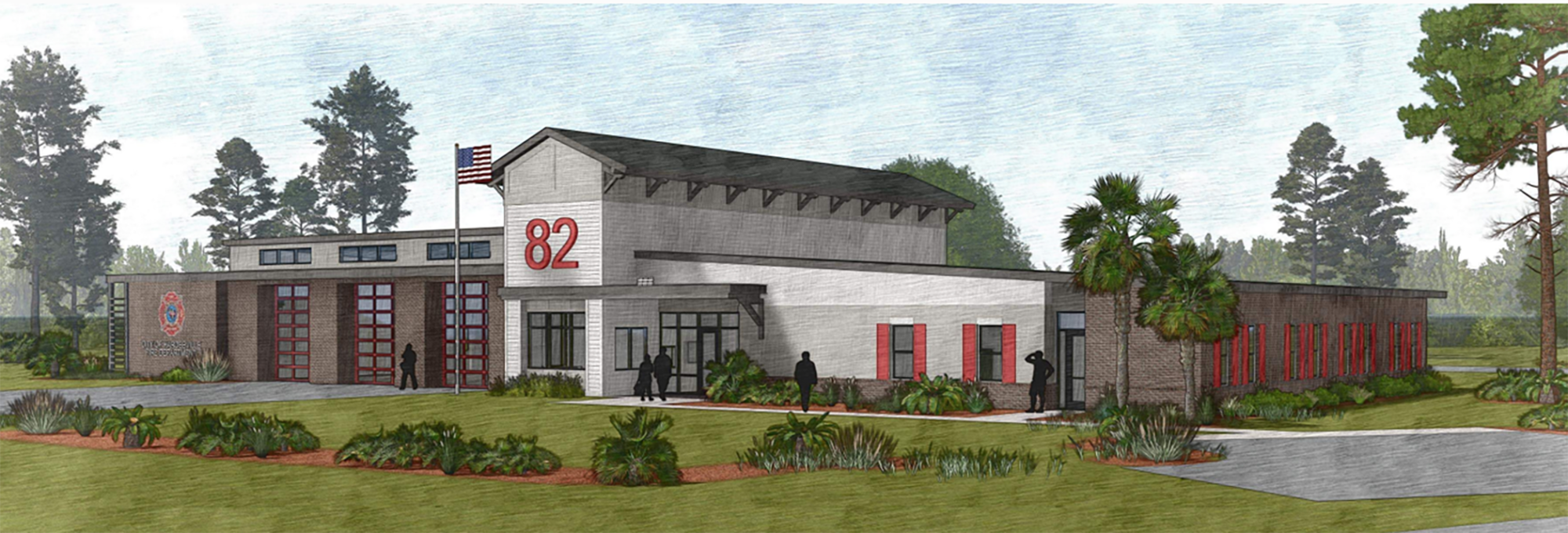A city’s capital project director or manager wears many hats. The role includes responsibility for budgeting, planning and construction management — and the list often goes on from there.
Ask Dani Fox, the capital projects manager in Aiken, whose job includes oversight and management of major capital projects for the city.
Fox spent more than 20 years in the construction industry, and said she was prepared for the role in Aiken through “a blend of technical education and hands-on experience.”

In Aiken, the Cuthbert Stream restoration project made use of an SC Rural Infrastructure
Authority grant and the capital project sales tax. Photo: City of Aiken.
“Project management in the public sector involves an understanding of project development, budgeting, funding, procurement, construction and project monitoring. You really need exposure and experience in all facets of local government to really excel in this role,” she said. “While my education provided the foundation for the critical thinking and managing skills, completing projects hands-on and having great mentors over the years really prepared me for all of the project management roles I have held.”
Fox says she has been lucky in her career to work on cutting-edge projects in everything from pavement rehabilitation and heavy civil infrastructure to water, sewer and stormwater projects as well as airport improvements.
“The project portfolio I have offers such a diversity of projects that I get to work on utility improvements, roadway improvements and expansion, smaller tenant improvements, park projects, technical studies and many more,” she said.
In Aiken, she currently is managing the two phases of the Powderhouse Connector project, Shaw’s Creek water treatment plant, the University Parkway widening, Northside sewer improvements, Centennial waterline improvements, and other small projects including the interior remodeling of a recreation center and an exterior park renovation.
Project funding is among the most complex aspects of her role, she said. Aiken’s capital improvement program is funded through many sources including local funds, state and federal grants, bonds, loans and the capital project sales tax. Her involvement typically begins after the funding is awarded, and involves all of the project administration tasks involved in procurement, reporting on the project, coordination of consultants, payment and reimbursement and ultimately close-out of a project.
“The partnership of city staff and granting agencies is really how projects get effectively built and managed,” Fox said. “I will say that the community’s support of the county capital project sales and use tax is a tremendous benefit to the capital improvement program for the City of Aiken and allows for funding that maintains, replaces and constructs new infrastructure that the city and our community needs. So part of my success is really partnership and success in keeping the program funded through the tax measure.”
In Greenville, Nick DePalma’s job as assistant city engineer for capital improvement projects gives him the opportunity to work on roadway, bridge and traffic solutions throughout the city.
“I run a small division of the engineering department that handles every phase of the project from planning and budgeting to design and construction,” he said. “In addition to working on projects funded through city means, I also work to coordinate our efforts with other entities, such as [the SC Department of Transportation] and GPATS [the Greenville Pickens Area Transportation Study].”

Current capital improvement projects in Greenville range from road upgrades to bridge
replacements and safety enhancements. Photo: City of Greenville.
Typically, his office serves as the main liaison between state transportation department staff and Greenville’s communications team, ensuring projects are explained and coordinated with the public.
Currently, his team is working on several projects in various phases. For example, it is in the planning phase for a future Queen Street bridge replacement project, the design phase of the East North Gateway Safety Project, and the construction phase on the Cultural Corridor project. It’s a position that requires a lot of juggling.
“I find that two of the most important skills are time management and adaptability. Many project managers will find themselves responsible for several things at once, so it is important to manage time wisely,” DePalma said. “Additionally, no project ever goes 100% according to plan. Being able to adapt to new information and a quick, sound decision-making process are critical to keeping projects on time and on budget.”
Jodie McMahon is the first capital improvement program director in Hardeeville, where she is responsible for the planning and management of a wide range of capital projects in a city where the population has exploded over the past decade.
While McMahon’s background is in construction management, she went to school for architecture and also took some engineering classes. Those three areas helped form the skillset necessary for managing capital projects.
Hardeeville is completing an expansion and renovation of the police department, which is now home to the largest evidence vault in the area, along with a classroom for training, a breakroom, new garage and a renovated detectives’ office. The city has also added a new nature walk adjacent to the park complex.
“That project turned out great. People love it and they use it all the time. It’s for tourism, but also for mental health awareness. People can go back there and get away from the city,” she said, adding that a second phase will expand the trail to connect to a nearby K-12 school.

Hardeeville’s slate of capital projects includes fire station construction as well as transportation
and park upgrades. Photo: City of Hardeeville.
“The things I’m most proud of are making a difference in the community for citizens and staff of Hardeeville,” McMahon said. “Any time you put in a building project that impacts how people live, eat or work, that’s a prideful moment to see people enjoying and taking pride in our community.”
She also managed development and construction of the Prosper Parkway. The road, which opened in May 2024, is the first road built by the city, and is expected to have a huge economic impact as it provides transportation and opportunities for new businesses in Commerce Park, she said.
Projects in the works include building three fire stations, parking and sidewalk projects, a splash pad, expansion to the city’s playground, traffic signals and a joint police and fire department training facility. The city has also purchased a house to convert to workspace for city staff, and a memorial park for veterans and first responders.
“That park is going to be a showcase piece,” McMahon said. “It is beautifully designed and we are excited to get into construction on that.”
She said she enjoys the “in the field, boots on the ground” aspect of her job.
“It’s constant change, every day. It’s crisis management. It’s being flexible. It’s problem solving. You have to be an organized, flexible negotiator who can build relationships. I really like the staff I’m with. People here are committed to creating a beautiful city and helping the residents of Hardeeville. They’re passionate about it.”
Her advice to other cities facing the “overwhelming task of prioritizing” capital improvement projects: “Don’t sweat the small stuff. Tackle the things you have money for. Every single improvement is going to make a difference. I don’t care if it’s the smallest things, people start to notice when there’s an investment in our city. They like the change. They like that it’s moving forward. Everyone wants to feel pride and ownership in their city.”
McMahon’s other piece of advice: “There’s always a solution. If you have the right team in place that help one another, you’ll find a way.”
